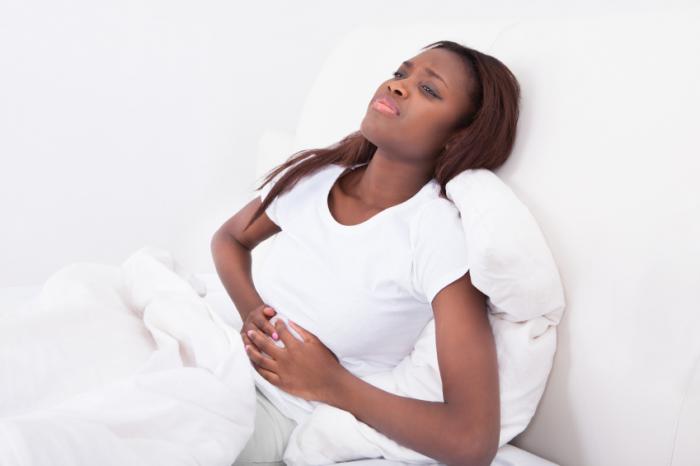
Uterine fibroids are benign or non-cancerous tumors that grow from the muscle layers of the womb. These benign growths of smooth muscle can vary from the size of a bean to being as large as a melon.
Fibroids are abnormal growths that develop in or on a woman’s uterus. Sometimes these tumors become quite large and cause severe abdominal pain and heavy periods. In other cases, they cause no signs or symptoms at all.
They usually develop between the ages of 16 to 50 years. These are the reproductive years during which estrogen levels are higher.
Causes of fibroids
1. It remains unclear exactly what causes fibroids. They may be related to estrogen levels. During the reproductive years, estrogen and progesterone levels are higher.
2. When estrogen levels are high, especially during pregnancy, fibroids tend to swell. They are also more likely to develop when a woman is taking birth control pills that contain estrogen.
3. Low estrogen levels can cause fibroids to shrink, during and after menopause.
4. Genetic factors are thought to impact the development of fibroids. Having a close relative with fibroids increases the chance of developing them.
5. There is also evidence that red meat, alcohol, and caffeine could increase the risk of fibroids, and that an increased intake of fruit and vegetables might reduce it.
6. Being overweight or obese increases the risk of fibroids.
7. Childbearing lowers the risk of developing fibroids. The risk reduces each time a woman gives birth.
7 Warning Signs About Cancer No Woman Should Ever Ignore
Symptoms of fibroids may include:
1. Heavy Vaginal Bleeding
Excessively heavy or prolonged menstrual bleeding is a common symptom. Women describe soaking through sanitary protection in less than an hour, passing blood clots and being unable to leave the house during the heaviest day of flow. As a result, some women develop anemia, also known as a low blood count. Anemia can cause fatigue, headaches and lightheadedness.
If heavy bleeding interferes with your everyday activities or if you develop anemia, you should see your doctor to discuss fibroid treatment options.
2. Pelvic Discomfort
Women with large fibroids may feel heaviness or pressure in their lower abdomen or pelvis. Often this is described as a vague discomfort rather than a sharp pain. Sometimes, the enlarged uterus makes it difficult to lie face down, bend over or exercise without discomfort.

3. Discomfort or Pain With Sexual Intercourse
Fibroids can make sexual intercourse painful or uncomfortable. The pain may occur only in specific positions or during certain times of the menstrual cycle. Discomfort during intercourse is a significant issue. If your doctor doesn’t ask you about this symptom, make sure you mention it.
4. Bladder Problems
The most common bladder symptom is needing to urinate frequently. A woman may wake up several times during the night to empty her bladder. Occasionally, women are unable to urinate despite a full bladder.
These symptoms are caused by fibroids pressing against the bladder, reducing its capacity for holding urine or blocking the outflow of urine. Treatment for bladder problems can provide great relief.
5. Low Back Pain
Rarely, fibroids press against the muscles and nerves of the lower back and cause back pain. A large fibroid on the back surface of the uterus is more likely to cause back pain than a small fibroid within the uterine wall. Because back pain is so common, it is important to look for other causes of the pain before attributing it to fibroids.
Fibroids that have grown into the uterine cavity should be removed before you conceive, since they can cause miscarriages and pregnancy complications.
If you have fibroids that have increased significantly in number or size, they should also be removed because they may cause complications during pregnancy. Myomectomy is usually the best fibroid treatment for women who plan to conceive.
Treatment
Treatment is only recommended for those women experiencing symptoms as a result of fibroids. If the fibroids are not affecting quality of life, treatment may not be necessary.
Fibroids can lead to heavy periods, but if these do not cause major problems, one may choose not to have treatment.
When treatment is necessary, it can take the form of medication or surgery. The location

















Leave a Reply